
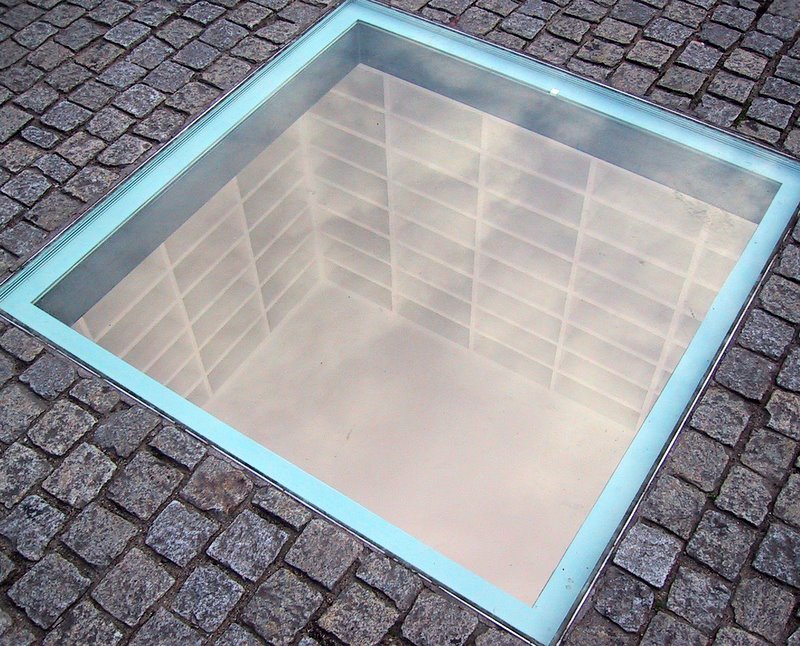
EARLY ISRAELI AND AMERICAN ARTISTS:
RE-VISIONING THE HOLOCAUST.
Talk by Ori Z Soltes, Georgetown University, Washington DC
April 17, 2023 @ 12:00 pm - 1:00 pm
| FreeIn honor of Yom HaShoah, this talk by Georgetown University professor Ori Z Soltes focuses on three Israeli and three American familiar and unfamiliar artists working in very diverse styles and not typically thought of as focusing on the Holocaust. Each of them, however, has offered powerful reflections on the defining catastrophe of the twentieth century.
Barnett Newman, the foremost verbal spokesman for the chromatic side of the abstract expressionist movement redefining American painting in the early 1950s, offers an unexpectedly intense reflection on the question of theodicy. Mordecai Ardon, in the process of assuming leadership of the Bezalel school in Jerusalem at around the same time, balances between abstraction and figuration in depicting the Nazi-engendered chaos. Yigal Tumarkin’s sculpture turns Holocaust chaos into upside-down order and Mauricio Lasansky’s drawings turn stridently to Nazi malfeasance to ask how evil can be envisioned. Micha Ullman’s installation addresses the void after the aftermath of Nazi destruction—and Geoffrey Laurence questions how we can and must shape the post-Holocaust future.
Each of these artists contributes to the endlessly complex dialogue—between Jews and Christians, humans and humans, and humans and God—that is the ongoing legacy of the Holocaust.
Image above: Micha Ullman, The Empty Library, 1995. Monument to the May 10, 1933 book burning, visible below the pavement of Bebelplatz in Berlin (Germany)
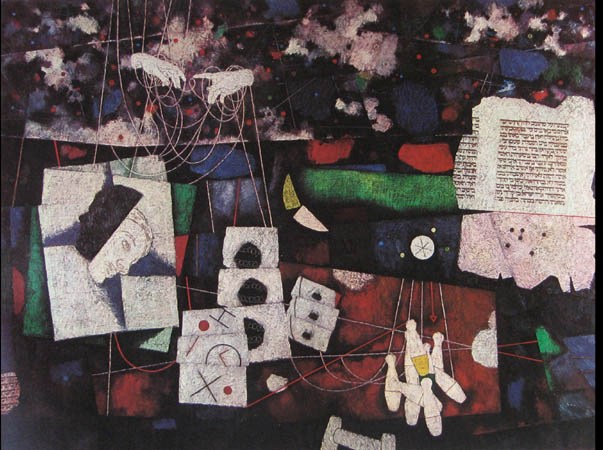
Mordecai Ardon, Missa Dura: Kristallnacht, 1958-60. Centre panel of triptych, oil on canvas, 76 3/4 x 102 1/2 in. (195 x 260 cm). Tate © Michael Ardon
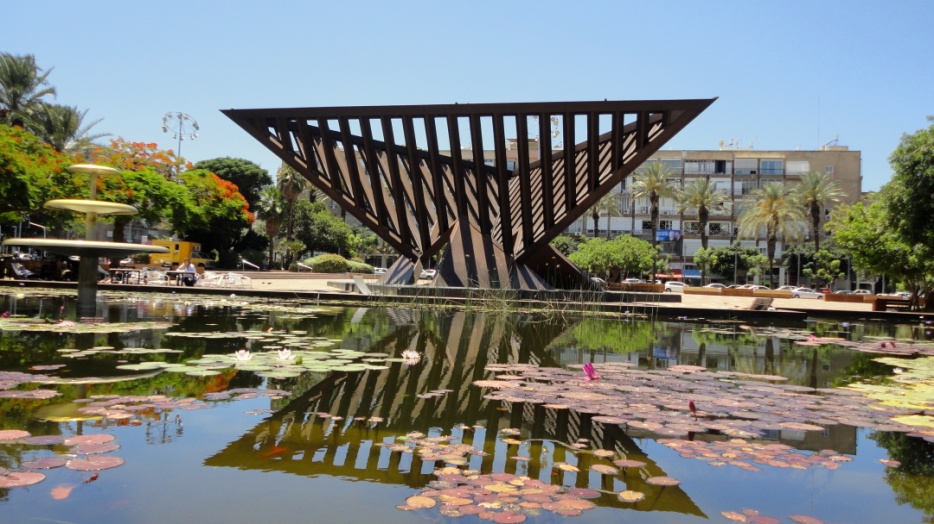
Yigal Tumarkin, Cenotaph (The Holocaust), 1975. Sculpture, 2,100 x 900 cm. Tel Aviv (Israel)
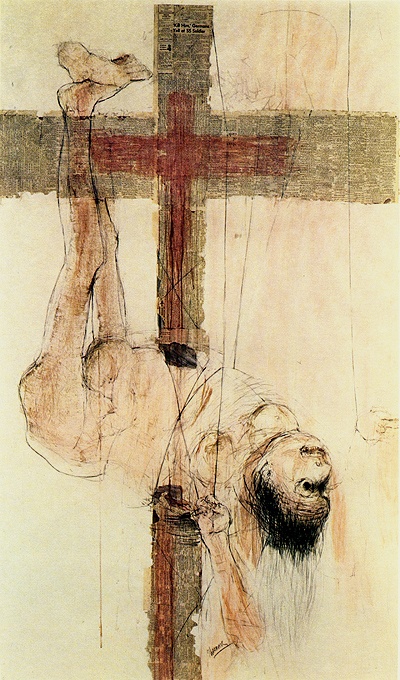
Mauricio Lasansky, The Nazi Drawings No. 18, 1961. Pencil, turpentine, and earth colors on paper, 75.5 x 45.5 in. The University of Iowa Museum of Art
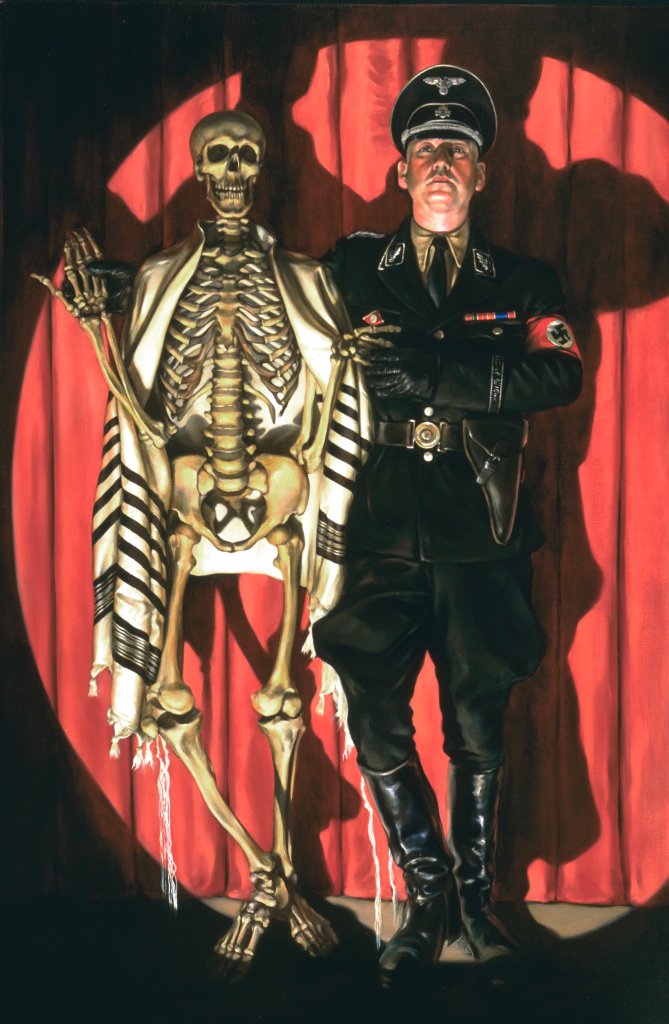
Geoffrey Laurence, ISWASWILLBE, 2000. Oil on canvas.
Ori Z Soltes, PhD, teaches at Georgetown University across a range of disciplines, from art history and theology to philosophy and political history. He is the former Director of the B’nai B’rith Klutznick National Jewish Museum, and has curated more than 90 exhibitions across the country and overseas. He has authored or edited 25 books and several hundred articles and essays. Recent volumes include Our Sacred Signs: How Jewish, Christian and Muslim Art Draw from the Same Source; The Ashen Rainbow: Essays on the Arts and the Holocaust; and Tradition and Transformation: Three Millennia of Jewish Art & Architecture; and Growing Up Jewish in India: Synagogues, Ceremonies, and Customs from the Bene Israel to the art of Siona Benjamin.
This event is part of our online series Flight or Fight. stories of artists under repression.
Future events and the recordings of past events can be found HERE.
The Fritz Ascher Society is a not-for-profit 501(c)3 organization. Your donation is fully tax deductible.
YOUR SUPPORT MAKES OUR WORK POSSIBLE. THANK YOU.


